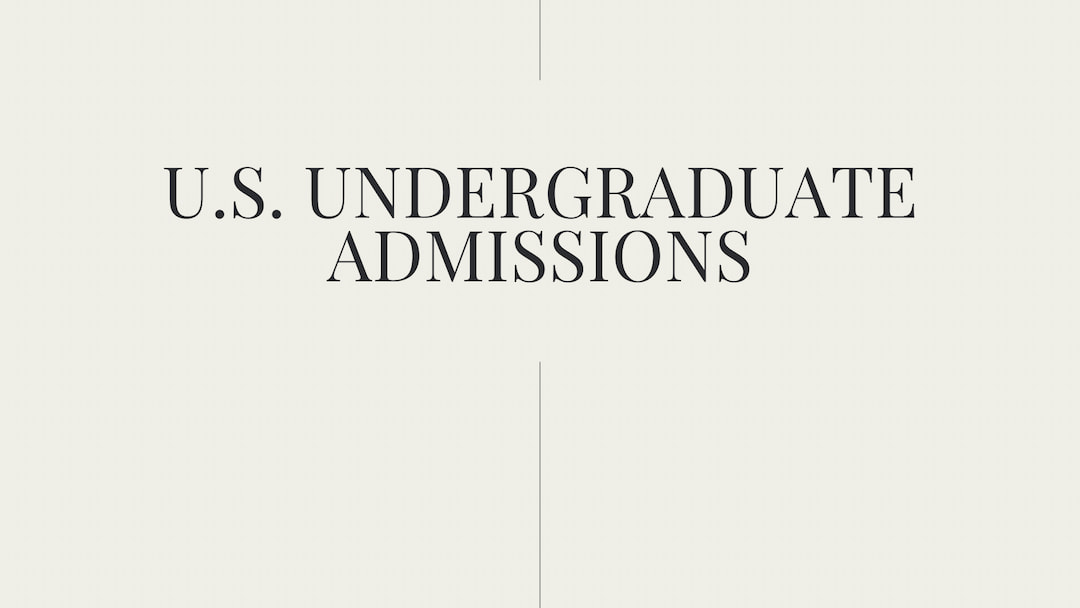Applying to an American university from a foreign country is both thrilling and challenging. Numerous students travel to the United States due to the variety of educational opportunities available. The most essential aspect of gaining admission to a university in the United States is careful planning and timely completion of all required steps.
Consider your motivations for attending college in the United States in order to make a wise college selection. In the autumn of their junior year, many students begin the university admissions process by taking the PSAT or other preliminary standardized tests. It’s not like in the UK.
In December of their senior year, the process eventually slows down as the majority of applications are submitted. Before entering the admissions frenzy or submitting those applications, obtain an overview of the entire procedure.
Almost every applicant to college poses a few of the following questions.
- What exactly is the admissions committee searching for?
- Is it accurate that if my scores are insufficient, my application will be automatically rejected?
- Are institutions seeking candidates with a two-page extracurricular activities resume?
- What are the admissions officers hoping (not) to “hear” in my application?
- Can studying actually improve my test scores?
- Does a university’s dense envelope always indicate acceptance?
The first step in answering these questions is to become familiar with the admissions process in the United States: when, where, and how to apply, as well as how to determine how you (and your family) will pay for it.
Creating a roster of universities to which you would like to apply is one of the most difficult tasks you will face as a high school student. Many concerns confront students, particularly those traveling from abroad.
Here is a list of all available information sources.
Professional Guidance
Your secondary school’s counseling office is an invaluable resource. If you need more assistance than your counselor can provide, however, you have access to outside resources, such as private educational consultants listed on our blog at BestCollegeAdmissionConsultants.com.
In addition, college inquiry and application assistance materials are available at any of the USIA-assisted Overseas Educational Advising Centers located in cities across the globe. These institutions have ties to the United States Information Services (USIS) or the United States Embassy. They provide resources to assist you comprehend the college search, admissions procedure, and financial aid options.
Does hiring an advisor worth it? The overseas advisors are knowledgeable and experienced regarding American university systems and admissions processes.
Books and Magazines
Numerous college guides are available, and you should likely peruse several of them. The College Issue of U.S. News and World Report contains rankings and statistics. The Road to College by Kaplan and other books provide information on various institutions. The more perspectives you obtain, the better.
Software
Included in college-searching software are videos, multimedia tools, and Internet connections. Numerous programs also customize the search procedure. Consult your school’s guidance office or library for software, or visit our online store.
The Internet
In addition to complimentary admissions advice, you can also find links to comprehensive college and university websites. The College Board is an excellent resource. The College Board assists high school students, counselors, and parents with the admissions process, and they offer a variety of pathways for international students to enter U.S. institutions. You can also find a helpful list of free online resources on our site.
The Universities Themselves
Contact institutions to request application materials and information. It is a convenient method to learn about a school’s campus, programs, and student body. You will receive a wealth of useful information. Consult books, software, and online resources for school addresses (email and physical mail) and telephone numbers.
Current and Former Students
A great approach to learn about a university is to speak with enrolled students and alumni (former students). They will discuss topics that the admissions office will not: the positives, the negatives, and the cuisine. Consider visiting a school, or even spending the night, so that you can meet students and determine if you feel secure on campus.

